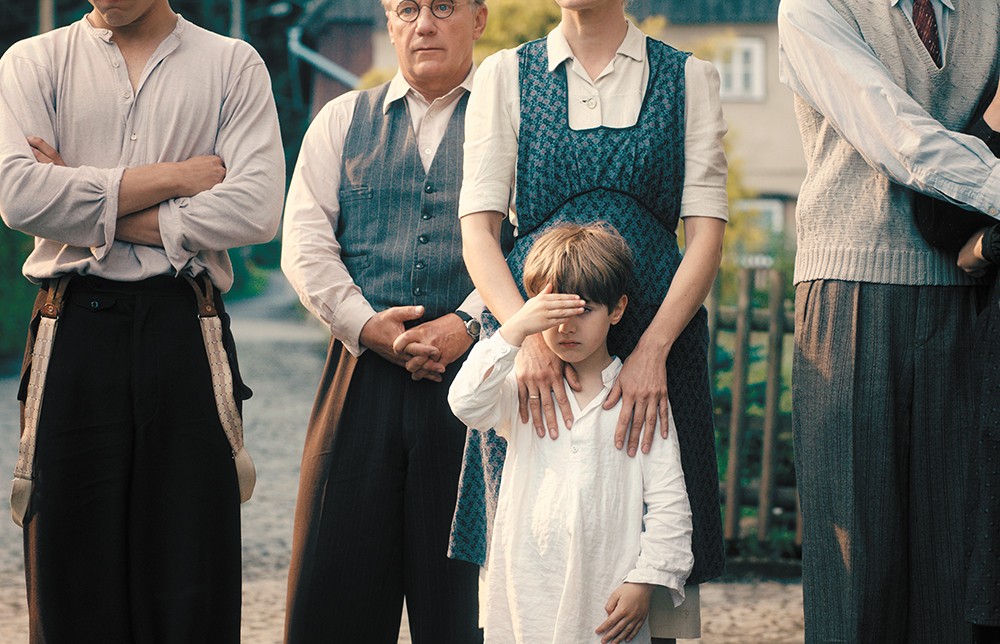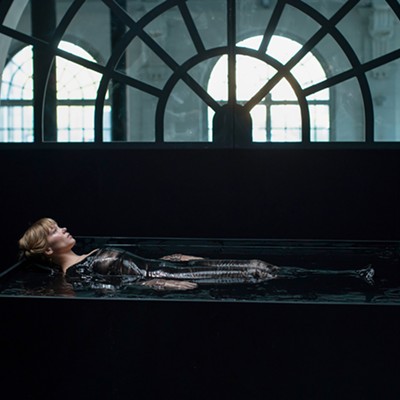In 2006, writer-director Florian Henckel von Donnersmarck delved into a dark period of German history via a compelling personal story with his Oscar-winning historical drama The Lives of Others, about an East German secret police operative who becomes obsessed with the couple he's been assigned to spy on. After a misguided Hollywood detour with 2010's The Tourist, von Donnersmarck returns to Germany for Never Look Away, another historical drama that attempts to meld the personal with the political (picking up an Oscar nomination for Best Foreign Language Film in the process).
Never Look Away has a wider scope than The Lives of Others, running a little over three hours and encompassing decades of German history, including two of the country's darkest periods, under Nazi rule and then divided into East and West following World War II. The movie's window into the country's evolution is painter Kurt Barnert (Tom Schilling), who's loosely based on renowned German artist Gerhard Richter.
This isn't a Richter biopic, though, and for most of the movie von Donnersmarck seems almost entirely uninterested in art. At first, Kurt doesn't even appear to be the main character, as the movie opens with nearly half an hour focused on Kurt's aunt Elisabeth (Saskia Rosendahl), a mentally ill free spirit who is first institutionalized and then executed by the Nazi regime.
The man most directly responsible for Elisabeth's treatment is the cruel, calculating Dr. Carl Seeband (The Lives of Others' Sebastian Koch), who becomes the movie's overarching villain, a sort of stand-in for the various destructive forces in German society. Koch plays him as an overt villain, the kind of Nazi commander who'd be more at home in an exploitation movie. Traumatized by the abduction and disappearance of his aunt, sensitive young Kurt grows into an equally sensitive young man, taking to heart his aunt's advice to "never look away" from troubling or disturbing images.
He aims to capture such images in his art, but living under the Communist regime in East Germany, he's instead forced to produce social-realist works that celebrate the proletariat. As an art student, Kurt meets fashion student Ellie (Paula Beer), and the two quickly fall in love and plan to marry. Unbeknownst to Kurt, Ellie's father is the same man who sentenced Kurt's aunt to death all those years ago. Simply shifting his sadistic, authoritarian ambitions from Nazism to Communism, Carl has reinvented himself as a top East German official.
Eventually, once he defects to the West along with Ellie (of course, Carl defects, too, now aligning his evil ways with capitalism), Kurt finds his true artistic voice, and the movie's final act focuses on his rise in the art world with paintings that embody his aunt's philosophy of confronting difficult truths head-on.
But Kurt himself remains a cipher, and Schilling is a void at the center of the movie, merely a vehicle for the story to hit the touchstones of German history from the Nazis' early days in power through the rise of the Berlin Wall. The initial romantic passion between Kurt and Ellie is the movie's highlight, when it strikes a balance between heady ideas and the intimate connection between two people. But every time Carl intrudes back into the story, the movie turns into a heavy-handed history lesson rather than the chronicle of an artist's life.
Like Kurt's paintings, the movie is meticulously, gorgeously composed (it was also nominated for an Oscar for its cinematography), and it has the feel of an old-fashioned historical epic. Yet the characters at its core remain inert, swept along on the tide of history without making much of an impact either on the course of their nation or on the viewer watching it all unfold. ♦






















